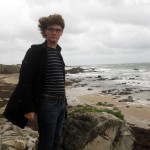Words are like magic that we made up.
They are a created force used to represent our thoughts and our mind, to reveal and discuss reality, and to understand and change the world in which we live. Words are like magic for the way in which they direct the flow of our mind. We can use words to communicate an idea, to make someone understand us, follow us, believe us. We can even turn them on ourselves, redirecting our minds through self-spoken words to increase our confidence, or our calm.
Yet for the benefit of their use, we pay a heavy price. In exchange for the use of words, we have to believe they are real. It is a contract drafted over many years, as children hear and gradually begin to understand. By the time they enter school, the contract has already been signed, and language seems to be one and the same with reality.
This is why it is so important to learn the language of a culture. The reality as seen by a culture cannot be understood without its language. And yet, no matter the language, words themselves are limited by the fact that somewhere in history, we made them up. Let me explain.
Most languages will tell you there is a difference between someone who is still and someone who is moving. That’s why there are different words for it. But physicists (who are much better authorities on motion than linguists) can’t actually measure the difference between stillness and constant motion. We feel still sitting at our computers reading this text, but we are actually in constant motion with the Earth. Physicists also can’t tell the difference between gravity and constant acceleration. In other words, the feeling you get when you slam on the gas pedal is the same as the pull you feel from the Earth, it’s just that one of them is more consistent.
Does this all seem a little too abstract for an article about language and travel? That’s where we so often go wrong: physics, no matter how confusing, is more concrete than the words. The real abstraction is the language. It is our contract with words that prohibits us from seeing that they are not the reality. The most triumphant magic of words is their ability to fool even their creators.
This travel journal has been an exercise in sharing my experiences with you. These posts have been non-fiction in that they are based on my real experiences here. Yet the posts themselves cannot actually touch the reality of my experiences. We think we can wrap things in adjectives, tie them up in details, and mail them through metaphors to people who will read and share the experience. But when the package arrives, there is nothing but bubble wrap and packing peanuts in the crude shape of what I have here lived.
No matter my command of words, no matter how carefully I employ them, no matter how focused my reader is, I cannot reconstruct what it has been like to put my feet on the ground here, to smell and to taste my life in France. I can’t convey this journey to you through words because the words are made up, and the journey is not. Beyond the words I use are the stones on which I walk, the rocky cliffs which I have seen, and the people I have met; the hands shaken, the bread broken, and the laughter shared.
As my time left in France seems to evaporate before my eyes, I cannot convey to you in English or French how meaningful it has been to study abroad here. I cannot, in any language, express to you the importance of traveling outside of our homes, outside of our boxes, and putting our feet in the world. No words, no paper, no pen can take you there.
- This is the rocky coast of Brittany near Pornichet, where I recently visited with my host family. There is no way to describe how beautiful it is, even if the weather wasn’t perfect.
- There is also no way to describe the wind, although I think my hair helps.


another amazing entry. Do you mind if I use some of your writings in the office, with prospective students, etc?
Please, feel free Jill! As far as I’m concerned they belong to the CICE just as much as they do to me.